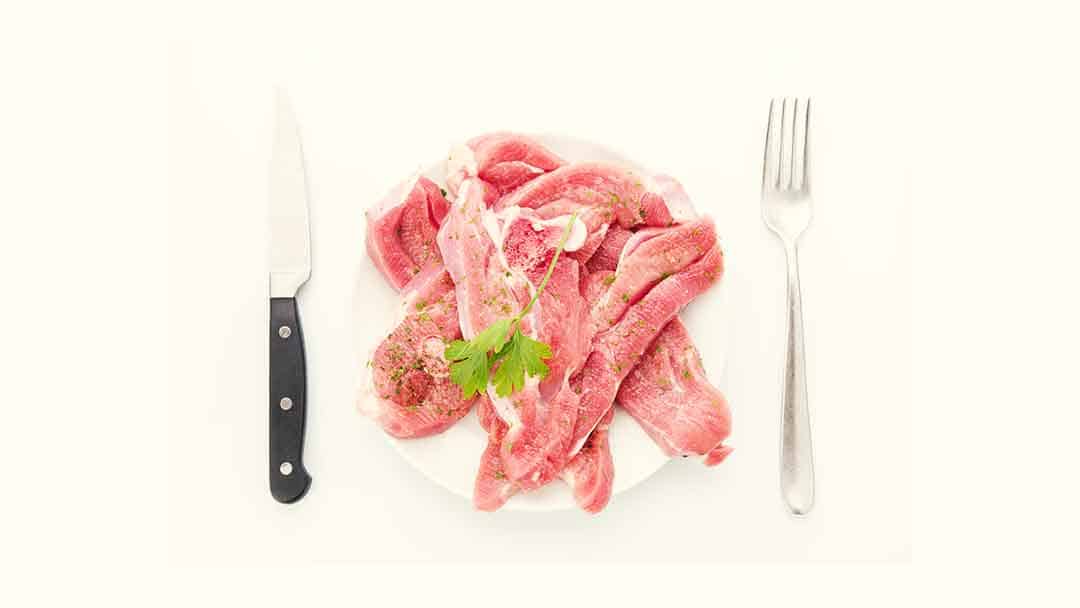How Long Can You Stay On the Carnivore Diet?

As an Amazon Associate we earn from qualifying purchases made on our website. If you make a purchase through links from this website, we may get a small share of the sale from Amazon and other similar affiliate programs. You can read our complete legal information for more details. By using this site, you agree the information contained here is for informational purposes only. For specific medical questions, consult your doctor. NO information on this site should be used to diagnose, treat, prevent or cure any disease or condition.
This is perhaps the most common question people ask about when they come across the carnivore diet. Maybe it is the hard-core restriction that sounds too hard to accomplish, or its effects on health are just too good to be true.
A very good question to ask yourself before you continue reading is: how far are you willing to go to improve your health? If you can keep an open mind, and shake off the mass media’s opposing opinions and questionnaire-based research out of your mind, this article might give you the insight you need to answer this question yourself.

Is there any research on the carnivore diet?
The short answer is no. Till this day no long term clinical trial on an appropriate number of participants was done.
There are some studies with low-carb diets though. This means that soon enough carnivore diet studies should take place. But even then nutritional science is extremely shaky. Just check out this post that debunks and criticizes our current state of affairs:
However, we do have a 100-year-old study. An early 20th century arctic explorer believed that he needed to immerse himself in any culture he truly wanted to explore.
In one of his expeditions, Vilhjalmur Stefansson, a Harvard trained anthropologist, became a true Inuit or “an Eskimo to the skin” as he likes to describe it. He did everything they did, and this included their eating habits. Therefore, for almost 7 years he followed a carnivore diet.
When he returned home and described his experience, no one believed him. He decided to replicate that experience under doctors’ supervision.
In 1928, he and a fellow teammate were admitted to New York’s Bellevue Hospital to test out an all-meat diet. His family and friends were concerned for his safety and tried to talk him out of it, and his doctors were sure he will suffer from all sorts of deficiencies.
At first, there was some struggle to replicate the protein and fat content of the Inuit’s diet.
However, they eventually fixed that problem, and they went through with the research for a whole year. The results shocked the scientific community at the time. You can find in the results section:
‘’At the end of the year, the subjects were mentally alert, physically active, and showed no specific physical changes in any system of the body.’’
‘’In these trained subjects, the clinical observations and laboratory studies gave no evidence that any ill effects had occurred from the prolonged use of the exclusive meat diet.’’ (1).
Around that time, Dr. Adelbert Fernald, a Harvard dentist, was researching the effect of the all-meat diet on the teeth of the Inuit. He concluded that this diet is the best one for oral hygiene (3).
Can we trust the current research?
Any medical view written and publicized today needs research. This research comes in all shapes and sizes. Researchers can do mistakes like fall in biases or use an inappropriate statistical approach to test a hypothesis.
Also, some research can be biased on purpose too by major pharmaceuticals or food companies for example.
Another problem with nutrition research is that it’s mostly epidemiological. This is another nail in the coffin of trust because epidemiology is more concerned with the association and not causation.
This is why we thought butter is good for us. Then, fat became the enemy.
Then studies emerge and tell us that cholesterol is good for us. To this day, we have no idea if eggs that we ate for ages are good or harmful for us. You can read more about this in this enlightening article by Dr. Georgie Ede (4).

Are people following the carnivore diet today?
Yes! Not only were our ancestors were carnivores. Celebrities, athletes, and people from all walks of life are enjoying that lifestyle.
They feel stronger, healthier, and it got the job done for them. Remember, the diet is originally designed to remove all the unwanted and potentially harmful food products and give you better health results.
While people lose weight on this diet, weight loss is not the only goal; the diet is not that focused on weight and calories. It’s focused on clinically feeling good.
You can find many Facebook groups, blogs, and podcasts. You can even check our article on famous people who tried this diet and check out their journeys.
Also, everyone develops their menu with accepted foods and drinks. Not all carnivores follow the same dietary restrictions.
They just all do so under the same umbrella of rules.
For instance, some might allow for cheese and dairy while others refute them. This gives you more room to experiment and find out how you can make it last longer.
Basically remove all dogma and figure out what works for you the best!
Is it safe or dangerous?
As you can see it’s a highly debatable question. that’s why we devoted an entire article on the subject. We basically tried to find the most dangerous aspects and concerns and put them into a small list. Te whole article is here:

How long should you do the carnivore diet?
No one answer fits all to this question. Your relationship with food is complicated, and it comes with trial and error.
This is how you figured out what kind of food you preferred and what upset your stomach. You are unique; genes, needs, economics, and environments vary wildly from one person to the other. To think that one diet will fit all and provide great results in all frontiers is just insane.
The golden rule here is to stick to the diet as long as you see positive results and feel great.
Why mess with perfection? And who is the best judge until enough research is done? You! Of course, medical advice is very important, but you aren’t happy with what’s available today and how your body feels while you feed yourself according to public opinion. Hence, you are here now.
The carnivore diet is just another way to eat. It will have opponents and proponents like all other diets. You just need to experiment until you reach the one diet that works best for you. You might want to start a 28-day challenge and see what happens.
In fact we have great starter article to point you in the right direction:
Your ride may be a bit bumpy at first if you get the low-carb flu. You can check our article on ways to avoid it and possibly remedy it.
Final words
Maybe these anecdotes we have, the 100-year old research, and the pieces of research here and there are not enough to rewrite nutrition books.
To rewrite literature, you need clinical trials and systemic analysis of data as medicine today runs on evidence-based medicine. Until then, you can read for yourself and join thousands on this carnivore experience.
You lived with your body the most, and you need to learn to listen to it. Whatever works for you, just works for you.
If you want to increase your knowledge with books then I recommend these two in no particular order:
Of course, you need to keep your doctor updated on your dietary choices and supplement intake. Also, if you suffer from chronic conditions, you might need some dosage modification or a closer modification of different health parameters. Always check with your doctor!
Check us out on YouTube! Our channel is Wild!
Disclaimer: I’m not a doctor. Consult with and ask your doctor about any diet or medical-related questions. No information on this site should be used to diagnose, treat, prevent, or cure any disease or condition.



